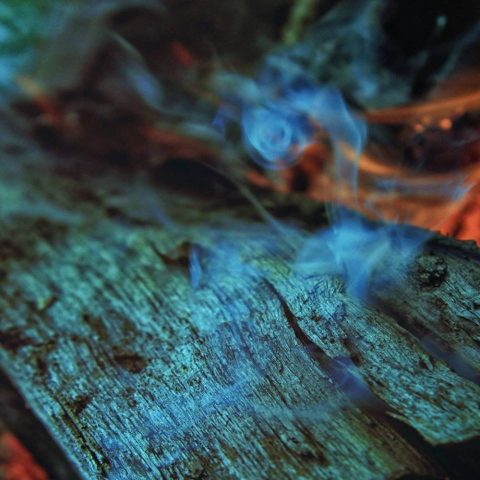I love how you’ve melded the tender subject of the loss of a child with short, direct sentences. The result is quite haunting. Was this intentional?
Wow, I love this reading of the story. It’s partially intentional: I find that when I write about raw loss, longer, more descriptive sentences have a tendency to hide the pain of the moment. Short sentences, in a situation like this, strip away everything but the pain. I do think that our poetic subconscious has a way of guiding structure in ways we don’t always appreciate at the surface, however.
Did an actual photograph spur the idea of “Emma Jane Watson in a Drawer?”
I’m so glad you asked this. I discovered Emma Jane Watson in a drawer at the Lawrence Antique Mall in Lawrence, Kansas. I knew of the practice of photographing deceased children, but this was the first image I had held. I couldn’t stop thinking about the mother who lost this child, the mother who must have treasured this photograph. How did it find its way to an antique mall? Where did this baby lose her history? Her family? I actually considered buying the photograph, taking it home, and giving the baby room among the photos of my children, like Julie does in the story. I regret not doing that, in fact, and I often think about going back to find her ….
Was this a fast write for you? Describe your process.
I’m a ruminator who’s lucky enough to have a fairly long commute. I drive about thirty minutes to downtown Kansas City every day for work and get some of my best ruminating done on that drive. I dedicate that thirty minutes to solving a problem in a story—whether that’s the first line or what happens next or where it needs to end. This story was probably a faster write than most because it was essentially the manifestation of what I wanted to do, but once I’ve ruminated on a story for a few days, I can write a draft in a couple of sessions. I’d also like to send a shout out to my writer friends, who give me the kindest, most thoughtful edits. Reading their work makes me a better writer, and I couldn’t ask for a better group of editors.
I read on your website that your fiction “….can’t seem to outrun General Sherman or the effect of the Civil War.” What do you think draws you to write historical fiction and/or history’s imprint on modern times?
I have a friend who says my writing is historic recursion: personal history repeats itself, family history repeats itself, national history repeats itself. To understand why we keep returning to the same moments, we have to address those moments head on. We have to talk about them.
I’m fascinated by how we hang on to history in this country. My family has lived in the Piedmont of North Carolina for hundreds of years. There’s a story passed down about General Sherman trying to take my great-great-great grandmother’s last chicken. I’ve often wondered why that story has survived for generations—what did it mean then, and more importantly, what does it mean now? That story inspired the first novel-length manuscript I wrote. I’m on the eighth or ninth draft of that manuscript now, and I feel like I peel back a new layer of truth with each draft I write. I keep writing that story because I believe we need to talk about uncomfortable subjects, and somehow I’d like to use that story to open up a dialogue with people who have a shared history. How do we navigate that space to heal, not harm? It’s a scary subject, and although I’m not sure I’ll ever get it quite right, I’d like to be a part of that conversation.
The Sherman novel is set in the modern South, but I finished a second novel last year that is truly historical fiction. Living on the border of Kansas and Missouri, it’s interesting to me that people still casually bring up the Border War (a big spark in starting the Civil War) as if it happened just a few years ago. I felt like I needed to understand why that conflict is still alive and breathing, and to do that, I needed to go back to that moment. I wanted to understand the assumptions we make about “the other”—and the crimes we commit to preserve that otherness.
What are you working on now?
I just started a book where the Mothman moves into the suburbs. It’s totally different from my other two manuscripts, and yet there are so many parallels. It’s still a book about “the other” at its heart.
I’ve been reading “A Very Old Man with Enormous Wings” a lot lately. That reading inspired a short story about a man who literally comes unraveled and a story about a woman incubating a kraken in her womb. I’m very interested in how parenthood changes us, too. That comes up a lot in my flash fiction. I hope to share more of that soon!



 The core workshop of SmokeLong Fitness is all in writing, so you can take part from anywhere at anytime. We are excited about creating a supportive, consistent and structured environment for flash writers to work on their craft in a community. We are thrilled and proud to say that our workshop participants have won, placed, or been listed in every major flash competition. Community works.
The core workshop of SmokeLong Fitness is all in writing, so you can take part from anywhere at anytime. We are excited about creating a supportive, consistent and structured environment for flash writers to work on their craft in a community. We are thrilled and proud to say that our workshop participants have won, placed, or been listed in every major flash competition. Community works.